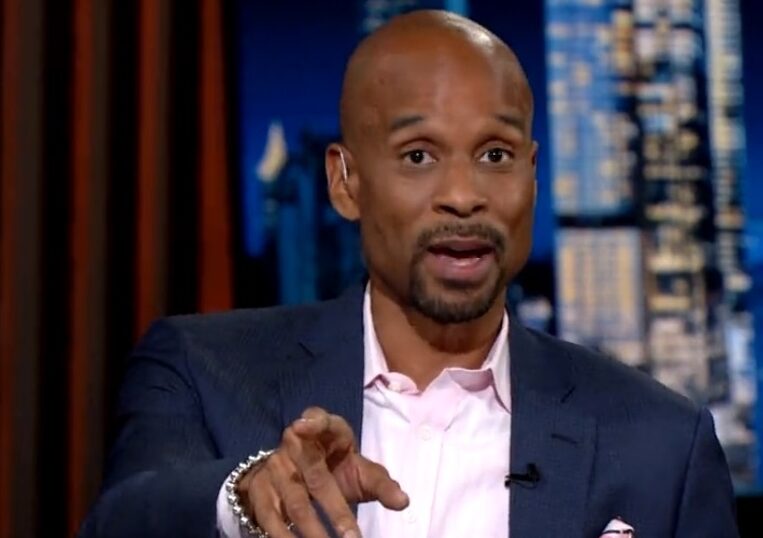Today was the official end of Funemployment. That’s not to say I’d like to borrow some money. I want you to give it to me. Stop laughing.
While not working, I did what pretty much everyone else in the 919 did — waited to see where Harrison Barnes, the top player in the recruiting class of 2010, would go to school. I had no idea. Coaches involved had no idea. I got no less than three calls before 1 p.m. from people in this media business, all to compare how much we didn’t know.
And so ends as fascinating a recruitment as I can recall. Of course, I haven’t paid too much attention over the years. I did, however, keep pretty close watch on John Wall’s recruitment, and folks repeatedly told me that situation was as unconventional as any they could remember.
If that’s the case, then Barnes’ has to take the cake.
Everyone knew Wall’s preferences, from schools to coaches. Save for Roy Williams’ cameo telephone appearance, the only real question was how the grown folks would make enough peace for Wall to do what he wanted — to play for John Calipari. It was interesting that Duke showed interest in a player that deviated from the school’s presumed recruiting profile, and the late appearance of Florida was an interesting wrinkle, but the ending to the saga was predictable.
Until Barnes put Roy Williams picture on the projector, I don’t know of a soul whose last name wasn’t “Barnes” that knew what Harrison would say.
A 17 year-old can keep this secret so well that no one in the country really knew where he was going to college? What’s weirder than that?
And if that’s not enough, the macro-level analysis is just as interesting.
Barnes became a huge story for two reasons — the curiosity generated when information is scarce, and Duke’s involvement. The last few months have seen Duke take great strides to promote itself as a more personable and contemporary program, one that’s easier to sell to recruits. But even in what appears to be a transition, Barnes seemed to be the recruit that most would presume Duke would get. He reads Warren Buffett for fun, and carries himself with a polish that most Ivy Leaguers wish they had. While it felt problematic to say he was “a Duke kid,” I’d be lying if I didn’t understand what people were trying to say.
Duke was the only school that would be crushed if it didn’t land Barnes. Mike Krzyzewski and Co. were the presumed leader for several months. Bill Self said he wasn’t even going to watch the announcement. Iowa State could only be hoping. UNC had Reggie Bullock, Scout.com’s No. 2 shooting guard for the class of 2010, making Barnes more luxurious than a necessary.
Duke lost him, and they lost him to the program they’re so fervently chasing for superiority in its vaunted rivalry (and, by extension, national supremacy). And while this was open to myriad interpretation, Barnes’ statement that he had a great relationship with Coach K, but a great relationship with Williams and UNC’s players will raise the volume on already-audible whispers that Duke has fallen out of favor with elite basketball talent.
After losing Delvon Roe to Michigan State (which Williams passive-aggressively refers to in his autobiography), Ol’ Roy quickly got commitments from almost all the players in the recruiting classes of 2008, 2009 and 2010. But while he has Bullock and Kendall Marshall locked in by January 2008, Barnes didn’t receive an offer until October of last year. Williams came to the party late — late enough that many wonder if Williams recruited Barnes out of spite — and he left with what his worst enemy had his eye on since the needle hit the record.
In a world where we do our damnedest to identify turning points before history is even made, those strategic facets of the story are positively delicious.
In terms of basketball, it’s not the end of the world for Duke. Those focused on such things say Kyrie Irving, a point guard committed to Duke for 2010, will be a great player. The Blue Devils have lacked an elite point since Chris Duhon graduated in 2004. Every elite point guard of the Krzyzewski era has reached an NCAA title game. In strict basketball terms, Irving was a more important recruit than Harrison Barnes.
But college sports are about branding, because branding and recruiting circularly fuel each other. The strength of a school’s brand is reflected by its recruiting, and its recruiting represents and strengthens or weakens the brand.
When the hallmark of the Duke brand — academic excellence — isn’t enough to lure a top notch prospect that told anyone who’d listen how important school is to him, then something isn’t right.
That isn’t merely fodder for Duke hatred. That’s an unavoidable point that must be addressed if Duke hopes to catch North Carolina anytime soon.
And losing on Harrison Barnes just made doing so more difficult.
November 13, 2009

Comments